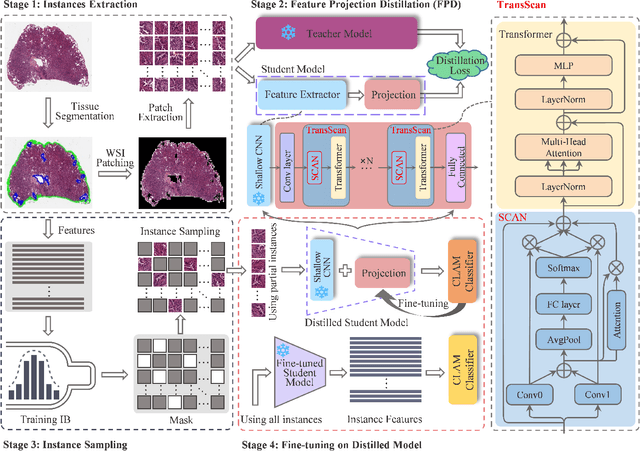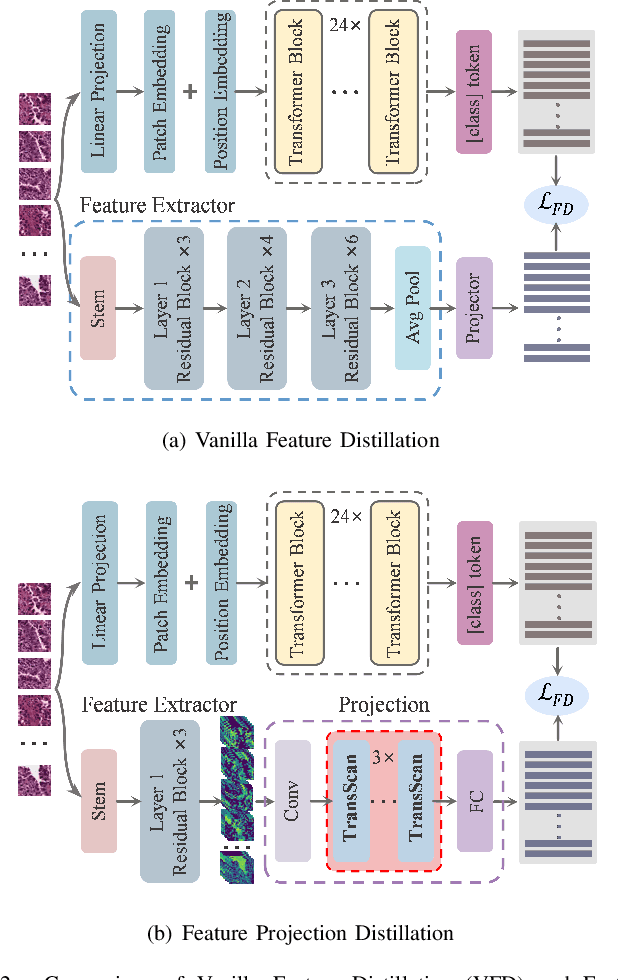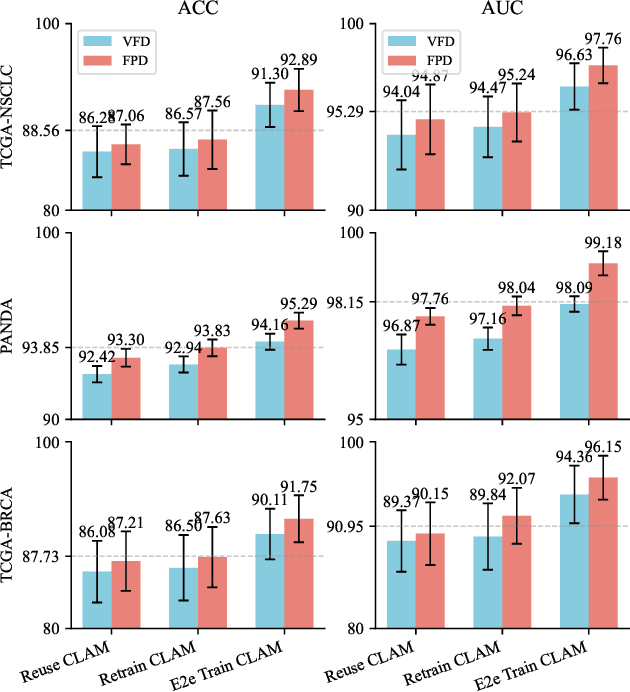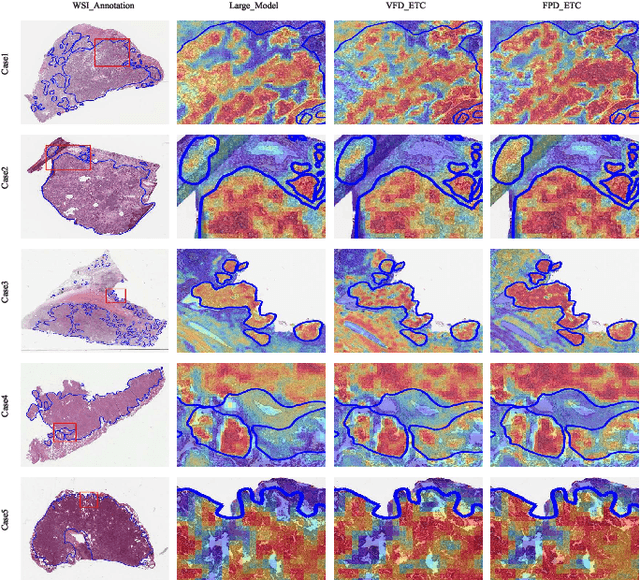EFCM: Efficient Fine-tuning on Compressed Models for deployment of large models in medical image analysis
Paper and Code
Sep 18, 2024



The recent development of deep learning large models in medicine shows remarkable performance in medical image analysis and diagnosis, but their large number of parameters causes memory and inference latency challenges. Knowledge distillation offers a solution, but the slide-level gradients cannot be backpropagated for student model updates due to high-resolution pathological images and slide-level labels. This study presents an Efficient Fine-tuning on Compressed Models (EFCM) framework with two stages: unsupervised feature distillation and fine-tuning. In the distillation stage, Feature Projection Distillation (FPD) is proposed with a TransScan module for adaptive receptive field adjustment to enhance the knowledge absorption capability of the student model. In the slide-level fine-tuning stage, three strategies (Reuse CLAM, Retrain CLAM, and End2end Train CLAM (ETC)) are compared. Experiments are conducted on 11 downstream datasets related to three large medical models: RETFound for retina, MRM for chest X-ray, and BROW for histopathology. The experimental results demonstrate that the EFCM framework significantly improves accuracy and efficiency in handling slide-level pathological image problems, effectively addressing the challenges of deploying large medical models. Specifically, it achieves a 4.33% increase in ACC and a 5.2% increase in AUC compared to the large model BROW on the TCGA-NSCLC and TCGA-BRCA datasets. The analysis of model inference efficiency highlights the high efficiency of the distillation fine-tuning method.
 Add to Chrome
Add to Chrome Add to Firefox
Add to Firefox Add to Edge
Add to Edge